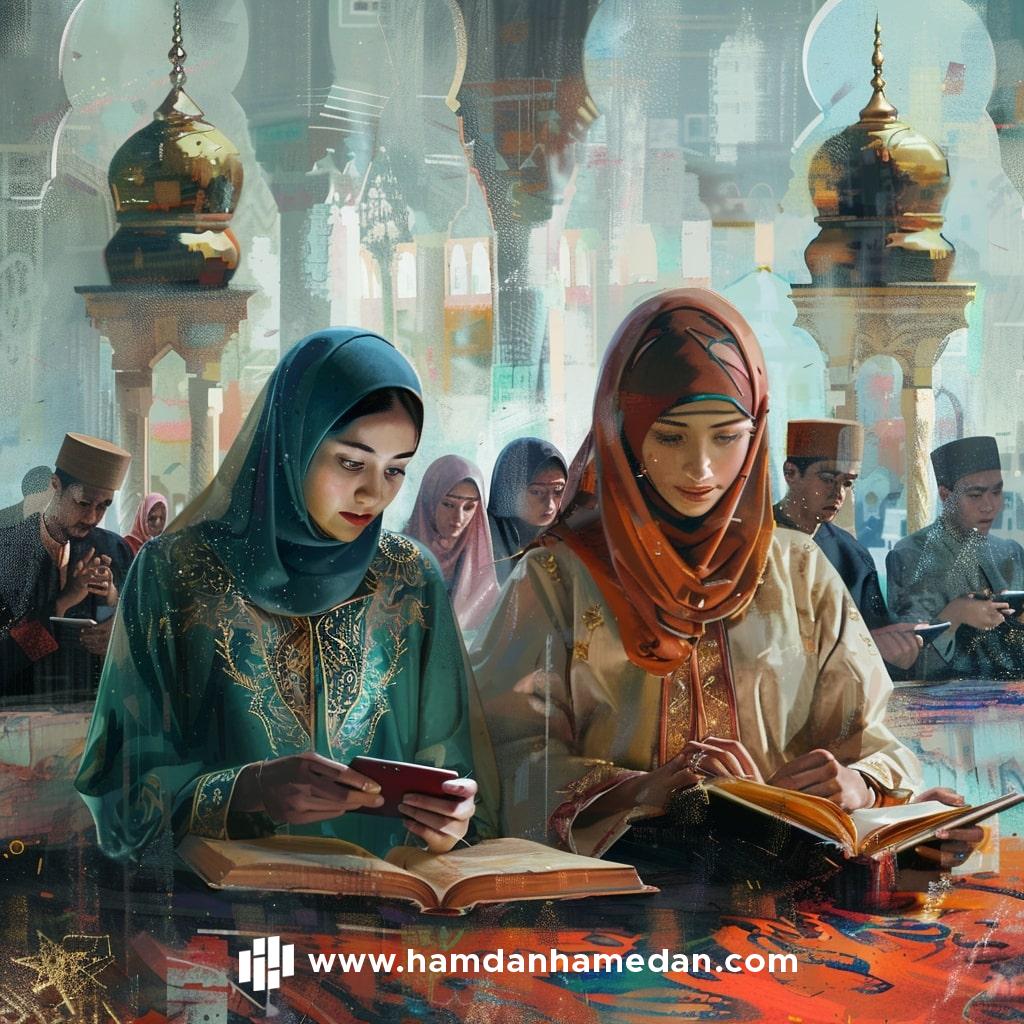
* This article was published in the Muslim 500 magazine
As early as 2018, a religious movement called ‘The Hijrah Movement’ was afoot in Indonesia. It would influence how Islam would be perceived and practiced in the largest Muslim country in the world. Spearheaded primarily by celebrities and a new breed of Islamic scholars, the Movement has continued to gain traction within Indonesia’s younger generation. This segment of the population is critical to amplifying the message of the Movement across the archipelago, not only because it comprises a significant portion of the country’s demographic but also because of its familiarity with technology and social media.
At its core, the Hijrah Movement calls upon fellow Muslims to abandon their less Islamic ways for a more Islamic way of life. Many Muslims, especially millennials, see this as an opportunity to change into better versions of themselves, versions that are closer to God. In 2019, the IDN Research Institute found that 72.8% of Indonesian millennials claimed that they were currently undertaking ‘hijrah’. Both inward and outward changes often manifest in those who partake in this ‘hijrah’. Sartorial and appearance changes are usually the first to manifest outwardly, followed by other changes in behavior, lifestyle, and social interactions.
Such transformation can be gradual or abrupt, depending on the individual and which scholars and teachings they adhere to. From celebrity-cum-preachers to Middle-East graduates with Salafi leanings, to moderate and modern scholars, this new wave of piety undoubtedly has no shortage of scholars. Although one could argue that certain strains of Islam, particularly Salafism, seem to ride the biggest wave.
Nonetheless, the positive impacts of the Movement are impossible to deny. More and more Muslims are (re)learning their religion, flocking to mosques and majelis (Islamic study groups) instead of malls. They pray tahajjud (night prayer) instead of dancing in nightclubs. They have also left behind their less-than-Islamic lifestyle. This newfound spiritual revival has influenced societal and economic changes, too. Ensuring that every single product used and consumed is halal-certified has resulted in a boom in demand for halal products, from the need to put money in exclusively Sharia-based institutions to the ever-growing modest and Islamic clothing and cosmetics industries.
Take the Good, Leave the Bad
Islam is, without a doubt, a religion that values learning. Its first revelation was “Iqra” (‘read’ or ‘recite’). Given that the society in 7th century Arabia was mostly illiterate, this command was a powerful, transformative action.
The Prophet of Islam (peace be upon him) himself also champions learning. He (peace be upon him) states, “Seeking knowledge is an obligation upon every Muslim” (Sunan Ibn Majah 224).
While not a hadith, there is a generally accepted apothegm that Muslims should, “Seek knowledge from the cradle to the grave.” Or in today’s parlance, Muslims should be lifelong learners.
As the Hijrah Movement gains momentum, the need to find spiritual teachers for the eager learners inevitably grows. In olden times, one would need to attend Islamic schools or Islamic boarding schools (known as pesantrens in Indonesia) for years to learn various Islamic sciences properly. Even after such a lengthy educational process in pesantrens, many graduates often feel they have just barely scratched the surface.
In this day and age, however, such accretion and extensive processes are often bypassed. Smartphones and social media now enable Muslims to learn Islam at the tip of their fingers. While these indubitably have their upsides in augmenting one’s knowledge of Islam, they are not without their downsides.
In Indonesia, less-than-qualified preachers now suddenly have the opportunity to attempt Qur’anic exegesis and derive rulings from Sahīh al-Bukhārī without even the requisite mastery of Arabic and other prerequisite sciences, let alone an ijāza (authorization) from respected scholars or universities. Despite the apparent lack of qualifications, these preachers gain popularity and reach thanks to the algorithms of social media that are indifferent to expertise while valuing clicks and controversial content.
Sunni Islam is particularly challenged in that it does not have a single religious authority that assigns imamhood to those who are qualified, thereby settling religious debate. Even within the Hijrah Movement, differences of opinion exist. Permissibility of celebrating the Prophet’s birthday (mawlid), for instance, often becomes the source of contention between scholars and their followers within the Movement. Another hot-button issue is whether today’s Indonesian government should be obeyed or replaced by the Islamic caliphate. Nevertheless, these last two issues are seldom discussed openly.
For laypeople, differentiating between real and pseudo-scholars can be tricky, as is choosing whom to follow. They naturally gravitate toward scholars who can convey the teaching of Islam in a simple manner combined with the utmost certitude. They certainly cannot be faulted for favoring a quick religious verdict on an issue instead of a rumination on several positions within the four Islamic schools of thought (al-Madhāhib al-Arba‘ah). That is simply beyond the scope of their competence. Simply put, they have no training for it, and thus, to some extent, find it to be confusing, if not boring.
In the simplicity and decisiveness department, perhaps nothing could compete with Salafi scholars, who are part-and-parcel of the Hijrah Movement. Their simplistic teaching of Islam, that one needs only the Qur’ān and major ḥadīth collections to understand the religion, appeals to many. Their decisiveness, especially in declaring “haram” or “bid’ah”, even on matters where legitimate differences of opinion exist, appeals to some as maintaining purity in an adulterated world. It is no surprise, then, that Salafism has probably got the most gains from the Hijrah Movement.
All was arguably well until the rise of “instant experts” and “bid’ah police”. With access to the Qur’ān and major hadīth collections online (often relying on translations), they began pontificating and attacking some practices that they deemed heretical. Social media is laden with this unfortunate diatribe. Traditional Muslims in Indonesia, who belong either officially, nominally, or culturally to Nahdlatul Ulama or Muhammadiyah, often suffer the brunt of these attacks. They, too, fire back, labeling these Hijrah-Salafi devotees as self-study neophytes whose superficial knowledge of Islam is either unable (or unwilling) to grasp the complexity of the religion. Rather than ‘hijrah’ (emigration), the traditionalists prefer the term ‘tawbah’ (repentance). They also suggest that those who are newly Hijrah/Tawbah strive to learn Islam from a teacher who is well-grounded in the tradition through an established chain of teachers going all the way back to the Prophet Muhammad—not relying so much on Shaykh Google or Imam YouTube.
Ultimately, both parties can learn from each other. Those who are currently undertaking ‘hijrah’ could benefit from classical Islamic training in pesantrens under the tutelage of Kiais/Nyais (male and female traditionalist scholars). And pesantrens could open their doors for them to learn the comprehensive approach to Islamic scripture. Meanwhile, traditionalist scholars should redouble their efforts in utilizing the Internet and social media to share their knowledge in a way that resonates well with a broader audience, particularly younger urbanites. Being adaptive, moderate, valuing mutual consultation, respecting scholars, and being courteous in matters of disagreement have been the hallmarks of Islam in Indonesia throughout the years. After all, these are what Indonesian Muslims are all about.




